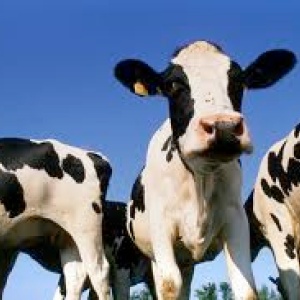
This is an interesting paper because it considers one of the potential nutritional downsides of reducing meat consumption – the risk that iron intakes might be undesirably low. The study finds that a replacement of meat and dairy intakes with plant based substitutes has benefits in terms of reduced land requirements and delivers saturated fat reductions.
It also says that iron intakes are not compromised although notes that iron from plant sources is less bioavailable.
Reference and abstract as follows:
Temme E H, van der Voet H, Thissen J T, Verkaik-Kloosterman J, van Donkersgoed G and Nonhebel S (2013). Replacement of meat and dairy by plant-derived foods: estimated effects on land use, iron and SFA intakes in young Dutch adult females. Public Health Nutrition, Online First
Abstract
Objective: Reduction in the current high levels of meat and dairy consumption may contribute to environmental as well as human health. Since meat is a major source of Fe, effects on Fe intake need to be evaluated, especially in groups vulnerable to negative Fe status. In the present study we evaluated the effects of replacing meat and dairy foods with plant-based products on environmental sustainability (land requirement) and health (SFA and Fe intakes) in women.
Design: Data on land requirements were derived from existing calculation methods. Food composition data were derived from the Dutch Food Composition Table 2006. Data were linked to the food consumption of young Dutch women. Land requirements and nutrient intakes were evaluated at baseline and in two scenarios in which 30 % (Scenario_30 %) or 100 % (Scenario_100 %) of the dairy and meat consumption was randomly replaced by the same amount of plant-based dairy- and meat-replacing foods.
Setting: The Netherlands.
Subjects: Three hundred and ninety-eight young Dutch females.
Results: Replacement of meat and dairy by plant-based foods benefited the environment by decreasing land use. The intake of SFA decreased considerably compared with the baseline situation. On average, total Fe intake increased by 2·5 mg/d, although most of the Fe intake was from a less bioavailable source.
Conclusions: Replacement of meat and dairy foods by plant-based foods reduced land use for consumption and SFA intake of young Dutch females and did not compromise total Fe intake.
You can download the paper here (subscription access only).
For a fuller discussion of the potential nutritional implications of lower meat and dairy intakes see Millward D and Garnett T (2010). Food and the planet: nutritional dilemmas of greenhouse gas emission reductions through reduced intakes of meat and dairy foods, Proceedings of the Nutrition Society, 69, 103–118. Available here.
For a very detailed assessment of the whole iron, meat and bioavailability issue you may want to look at the UK’s Standing Advisory Committee on Nutrition (SACN) report on iron and health here.



Post a new comment »